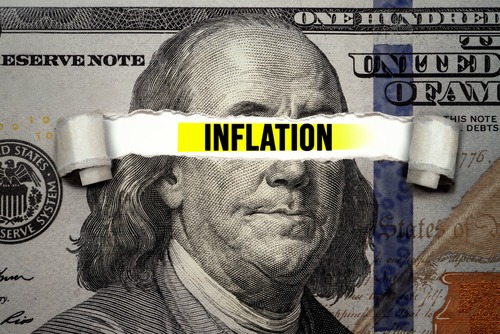
While every segment of Pennsylvania’s population is stressed because of inflation, according to State House Republican Policy Committee members, there is some relief for Pennsylvanians.
“In Congress, new bipartisan legislation would build a complete budget around the appropriations bills and engage all committees. Pennsylvania’s General Assembly could do likewise, perhaps without a change in statute, simply by changing practices,” testified Kurt Couchman, senior policy fellow for fiscal policy at Americans for Prosperity, during the committee’s Oct. 4 hearing, titled “Relief is Possible: Combatting the Crisis of Cost.”
At the same time, while state legislators can do little to address inflation, Couchman said they can reduce subsidies and unnecessary red tape to bring down prices across the board. “To do so, legislators must scrutinize government activities regularly,” he testified.
Legislative budgets should include and be able to manage all spending and revenue, including tax expenditures. Yet the Pennsylvania General Assembly and Congress consider separate appropriations bills that collectively cover a minority of spending and no revenue, Couchman said.
“More legislators could participate in the process to drive better results across all activities,” added Couchman. “For instance, scaling back low-value activities to focus on doing core functions better could also make room for tax upgrades that improve Pennsylvania’s competitiveness and grow prosperity.”
Couchman was joined by testifiers Ken Fisher, owner of Great Lakes Automation, and Logan Therasse, a realtor at Agresti Real Estate, during the hearing, which was led by Pennsylvania Rep. Josh Kail (R-Beaver/Washington) as the second hearing in a series on the widespread impact of inflation on local communities, small businesses, and households across the commonwealth.
The testifiers pointed out that small businesses face skyrocketing prices, labor shortages, and supply chain disruptions, while many households struggle to afford housing prices, energy, child care, and groceries.
According to Pennsylvania’s Joint Economic Committee State Inflation Tracker, in 2024, “the average household in Pennsylvania is paying $984 more per month to purchase the same basket of goods and services as in January 2021.” Also, compared to January 2021, the average household in Pennsylvania is currently spending $140 more on food per month, according to the GOP lawmakers.
“With the increased prices of gas, groceries, and other goods and services, Pennsylvanians are struggling to make ends meet. My constituents should not have to decide between paying the electric bills or purchasing medicine,” said State Rep. Jake Banta (R-Erie). “Having the Policy Committee in our district is just one way we are working to help Pennsylvanians. By listening to the challenges Pennsylvanians are facing due to inflation, we can uncover solutions without stifling growth.”
Kail said inflation is out of control, making life unaffordable for Pennsylvanians. “We must foster an environment that encourages economic growth and prosperity for the people of Pennsylvania before more lives are negatively impacted by this economic devastation,” he said.
Couchman agreed that more and better jobs could help Pennsylvanians overcome the burden of inflation.
“Better budgeting can fix problems, boost compensation and working conditions, and unleash more flourishing,” he testified. “Growing the economy by removing unneeded barriers can soak up excess money and reduce inflation, although any single state’s impact would be small.”
Pennsylvania should also adopt rules to balance the budget over the medium term instead of every year, Couchman said.
“Surpluses in good years would become reserves to fill gaps in bad years,” he pointed out. “Policies would be more stable and predictable, which would unleash more private sector investment and opportunity. Legislators could seek permanent improvements instead of cobbling together temporary patches for revenue swings.”